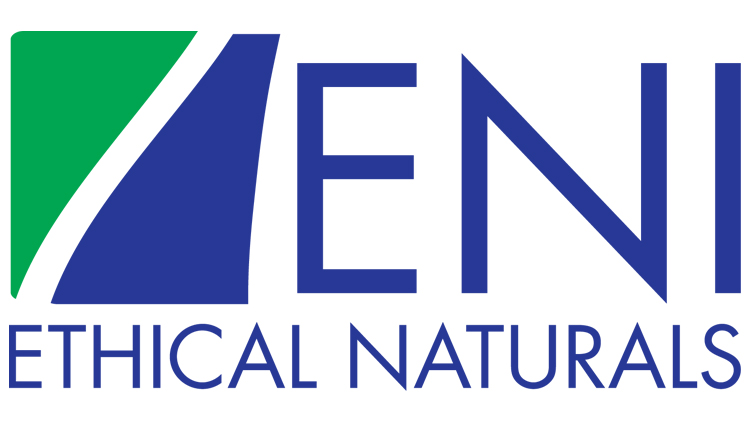Promotional Features
Demand for plant-based glucosamine grows as consumers seek eco-friendly alternative
Vegan and vegetarian diets are driving growth in the eco-friendly supplement market.
Walk through the supplement section of any health food store and it’s obvious that 'vegetable sourced’ or 'vegan sourced' is an increasingly visible selling point on a widening array of supplement products.
Data quantifies this growth in several published market reports and projections. One example: a report from Polaris Market Research analyzes current data and projects that the vegetarian supplement market is expected to more than double from 2022-2030, from $10.6 billion to $22.11 billion, reflecting a 10.35% annual growth.1
The report states: 'Compared to animal-based products, plant-based foods are thought to be safer and healthier. The sector for plant-based protein supplements has expanded dramatically as a result of growing animal welfare concerns. It is anticipated that rising consumer interest in healthier products and food safety will drive market expansion.'
A report published in Advanced Nutrition looks at this from the ecological viewpoint: 'To maintain planetary health, human activities must limit the use of Earth's resources within finite boundaries and avoid environmental degradation. At present, food systems account for a substantial use of natural resources and contribute considerably to climate change, degradation of land, water use, and other impacts, which in turn threaten human health through food insecurity’.2
This message is heard day by day in so many news formats reaching an ever-wider audience of consumers who are looking to make their contribution to planetary health. How do we answer this in our supplement product lines?
Eco-friendly care that makes a difference now
The purpose of this article isn't to explore how to build a complete eco-friendly supplement line. That needs to be done one product at a time. Here we focus on how one product category, joint care, can make a difference, thereby creating extra interest and demand in an existing category.
As one of the category’s original products, two decades ago, glucosamine is still a key ingredient in US joint care. Today, import volumes total 7,000–10,000 tons per year for use in both human and animal supplements.3
The traditional method for manufacturing glucosamine is to use residue from the Asian shellfish production industry, primarily shrimp farming. This source, and the aquaculture methods it uses, create substantial short and long-term environmental problems. These are described in a recent article from Scientific World Journal that listed key issues: destruction of valuable coastal mangrove swamps, damage caused by effluent affecting human drinking water and agriculture, uncontrolled and excessive use of antibiotics, among others.4
Furthermore, the processing of the shellfish residue material into glucosamine uses large quantities of lye and sodium hydroxide that create additional wastewater disposal problems. This is precisely the kind of undesirable environmental impact that consumers are increasingly rejecting.
GreenGrown glucosamine is eco-friendly
In contrast with this shellfish-based production cycle, the GreenGrown glucosamine production cycle begins with non-GMO corn. This is then converted into glucose followed by a bacterial fermentation and purification process that results in highly purified glucosamine in either hydrochloride or sulfate forms.
This material is equal in purity to traditional material produced from shellfish residue, but the corn-based fermentation process causes none of the primary or secondary ecological damage from this source. This contrast in environmental impact is highly motivating to today’s conscious consumer.
ISCT patent guarantees pure vegetable source
Because of the high purity level required for United States Pharmacopeia (USP) glucosamine (greater than 98%), it’s not possible to determine through high performance liquid chromatography (HPLC), or other commonly used methods that the source of the glucosamine is of vegetable or shellfish origin.
GreenGrown is the only glucosamine source that guarantees its vegetable origin by objective testing, using Isotopic Signature Carbon Tracing (ISCT). This method was developed by Ethical Naturals Inc. (ENI) specifically for glucosamine identity, and granted a patent in 2009. This is an essential step in today’s supply chain to assure identification, safety, and quality.
This source identification is also key for correct labeling, as products containing shellfish may trigger allergic reactions. All batches of GreenGrown are tested by ISCT to confirm 100% vegetable origin.
The value and protection of international patents
Many major brands today sell products internationally, and this is just one reason why US and international patents are highly valued. The process for manufacturing GreenGrown glucosamine by fermentation was developed by Arkion Life Sciences and is now covered by 20 patents in 12 countries: the US, China, Germany, France, the UK, Netherlands, Japan, Mexico, Australia, Brazil, Canada and Korea.
ENI is the exclusive licensee of these patents. This ensures that brands selling GreenGrown are protected from infringement and potential lawsuits in major markets worldwide.
Express these GreenGrown qualities on your company’s joint care product labels:
- Vegetable source tested and guaranteed by patented ICST.
- Highest USP grade, tested through ENI's National Sanitation Foundation (NSF) Certified quality assurance (QA) program.
- Certified non-GMO by Eurofins International.
- Produced by a fermentation process protected by 21 patents in 12 countries.
- Kosher and Halal Certified.
- A glucosamine source that's free-from shellfish allergy warning.
References
1. Polaris Market Research. Vegan Supplements Market Share, Size, Trends, Industry Analysis Report, By Product (Vitamins, Minerals, Amino Acids, Botanical Supplements, and Others); By Form; By Distribution Channel; By Region; Segment Forecast, 2022-2030.
2. Fresán, U.; & Sabaté, J. (2019). Vegetarian Diets: Planetary Health and Its Alignment with Human Health. Advances in nutrition (Bethesda, Md.), 10(Suppl_4), S380–S388.
3. ChemAnalyst.News. Glucosamine Prices to Remain on the Decline, Market Experts Predict.
4. Martinez-Porchas, M.; Martinez-Cordova, L.R.; (2012). World aquaculture: environmental impacts and troubleshooting alternatives. ScientificWorldJournal. 389623.






